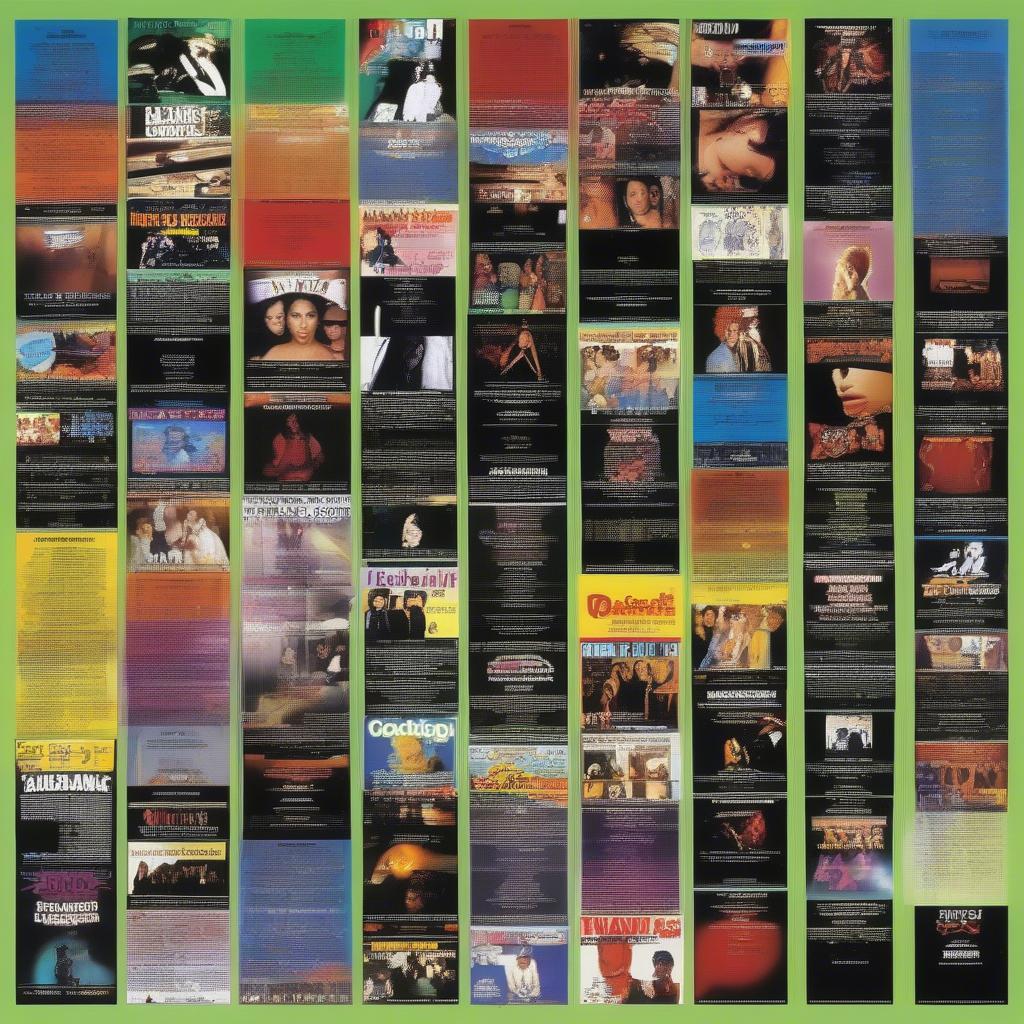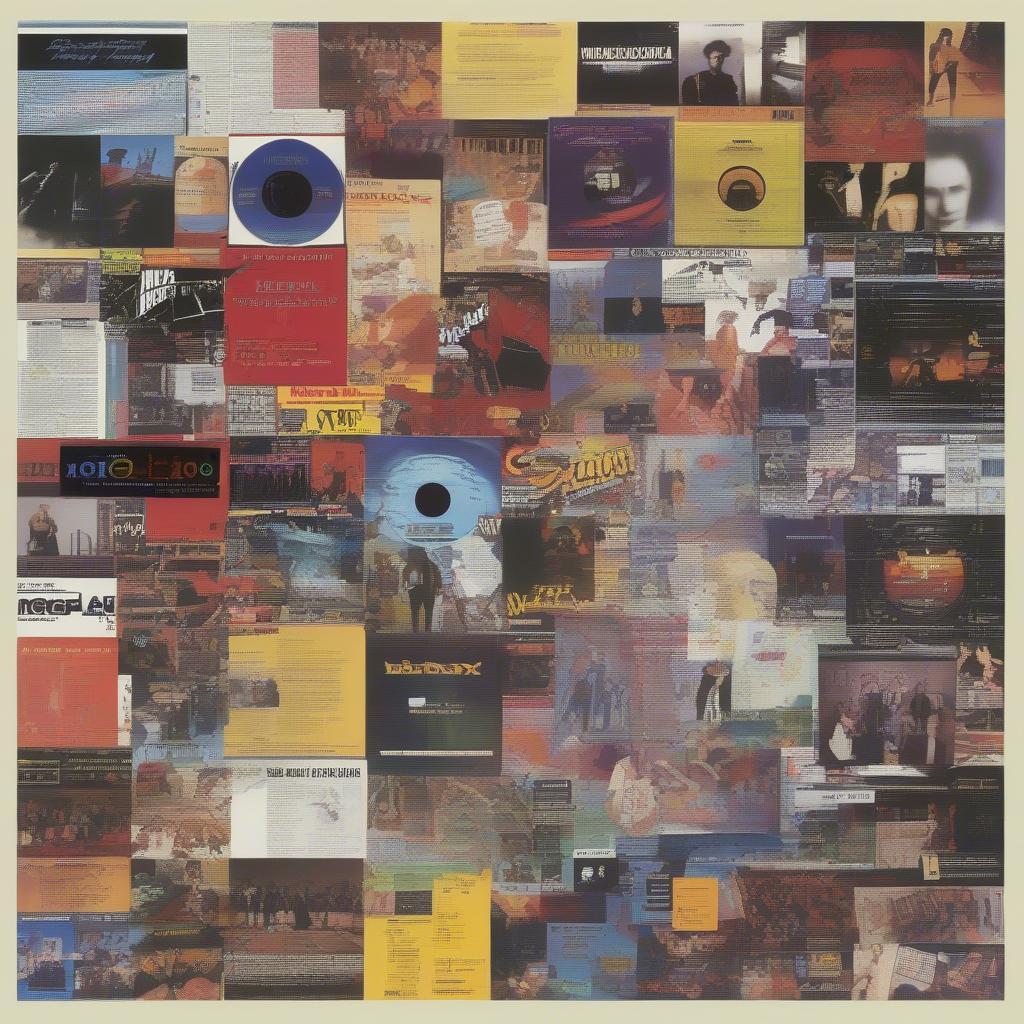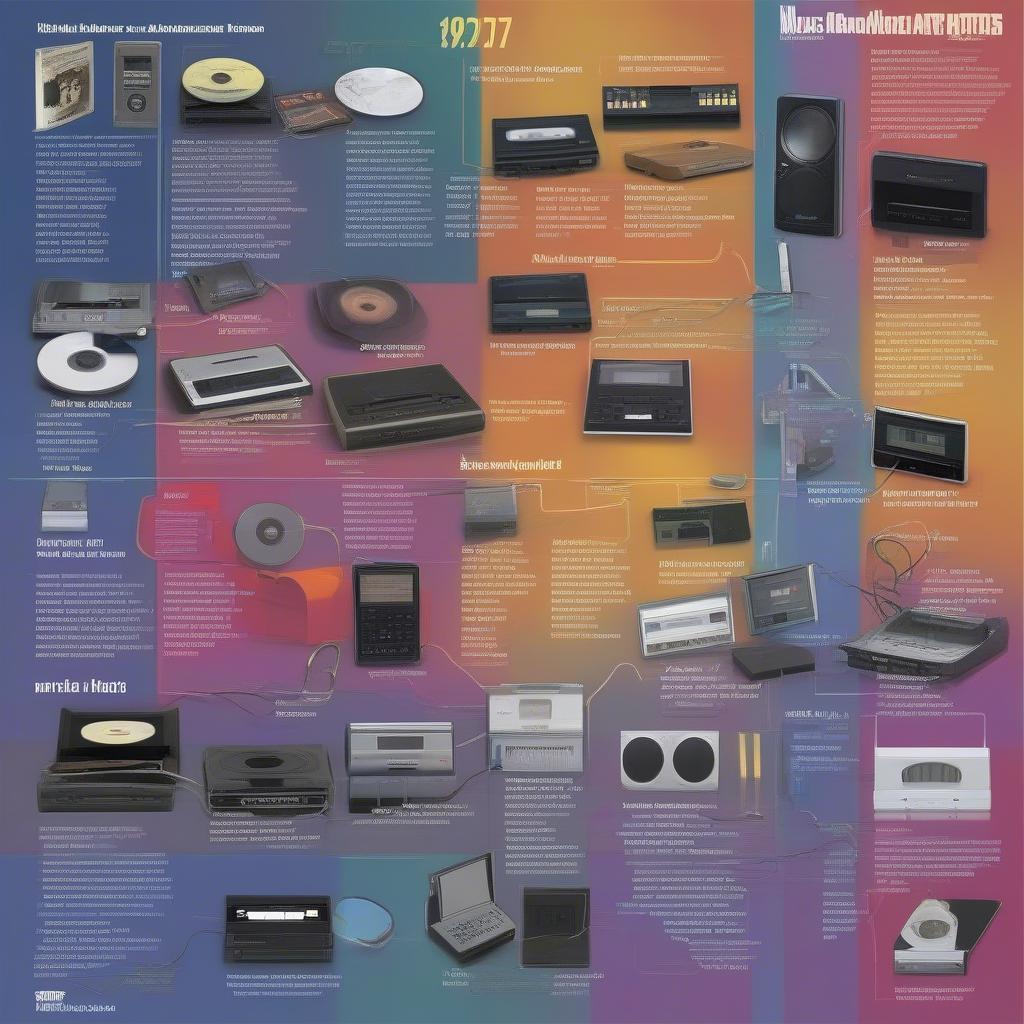The summer of 1997 was a melting pot of musical innovation. But what song reigned supreme on August 16, 1997? Let’s dive into the charts and rediscover the hits that defined this particular moment in music history.
 Billboard Charts Top Songs of 1997
Billboard Charts Top Songs of 1997
What Was the Number One Hit on August 16, 1997?
Pinpointing the exact number one hit on August 16, 1997, requires a deep dive into the music charts. While different charts may vary slightly, the Billboard Hot 100 is generally considered the definitive source. Around this time, Puff Daddy and Faith Evans featuring 112’s “I’ll Be Missing You” was enjoying a multi-week reign at the top, making it a strong contender for the top spot on August 16th. Other chart-topping hits during the summer of ’97 included The Notorious B.I.G.’s “Mo Money Mo Problems” and Hanson’s “MMMBop.” These songs reflect the diverse musical landscape of the time, encompassing hip-hop, pop, and R&B.
“The diversity in the charts really highlights how much music was evolving,” says music historian Dr. Emily Carter. “You had everything from catchy pop anthems to soulful tributes and hard-hitting hip-hop.”
The Sound of 1997: Beyond the August 16 1997 Top Song
Beyond the number one spot, the summer of 1997 was buzzing with a variety of other musical trends. Electronic music was gaining momentum, with artists like The Prodigy pushing boundaries. Alternative rock remained a dominant force, while R&B continued to evolve with the rise of neo-soul.
 Diverse Music Genres of 1997
Diverse Music Genres of 1997
What Other Songs Were Popular in August 1997?
Numerous other songs contributed to the rich tapestry of music in August 1997. Will Smith’s “Men in Black” provided the soundtrack to the summer blockbuster, while Jewel’s “Foolish Games” captured hearts with its raw emotion. The Spice Girls were at the peak of their popularity, adding their girl-power anthems to the mix.
“Remember dial-up internet and waiting for music videos to load?” asks Dr. Carter. “The experience of listening to music was different then, but the emotional connection was just as strong.”
The Legacy of August 16, 1997, and Its Music
The music of August 16, 1997, and the summer surrounding it, offers a snapshot of a dynamic period in music history. It was a time of experimentation and crossover, as different genres influenced each other and artists pushed creative boundaries.
 Music Technology in 1997
Music Technology in 1997
How Can I Find Out More About the August 16 1997 Top Song?
Numerous resources are available for those seeking more information. Online music archives, chart databases, and music history websites can provide detailed information about the top songs of 1997. Exploring these resources can offer a deeper understanding of the music that defined this era.
“Looking back at these charts is like taking a time machine back to a specific moment,” notes music journalist Alex Thompson. “It’s a reminder of the power of music to capture the spirit of a time.”
In conclusion, the August 16 1997 Top Song, alongside the other hits of that summer, represents a vibrant moment in music history. Whether it was the chart-topping hits or the rising undercurrents of new genres, the music of 1997 continues to resonate with listeners today.
FAQ
- What were the dominant music genres in 1997? Pop, R&B, hip-hop, alternative rock, and electronic music were all prominent in 1997.
- Where can I find the official Billboard charts for 1997? The Billboard website and other online music archives maintain historical chart data.
- What were some other popular artists in 1997? Besides those mentioned, artists like Mariah Carey, Backstreet Boys, and Radiohead were also popular.
- How did the music industry change in 1997? The rise of the internet and digital music formats began to impact the industry.
- What is the significance of “I’ll Be Missing You”? It was a tribute to The Notorious B.I.G. and a massive commercial success.
- What role did MTV play in 1997? MTV continued to be a major force in promoting music and shaping popular culture.
- How does the music of 1997 compare to today’s music? While musical styles have evolved, the emotional core of music remains constant.
Need further assistance? Contact us at Email: [email protected], or visit our office at Constellation Blvd, Suite 100, Los Angeles, CA 90067, USA. We have a 24/7 customer support team ready to help.
